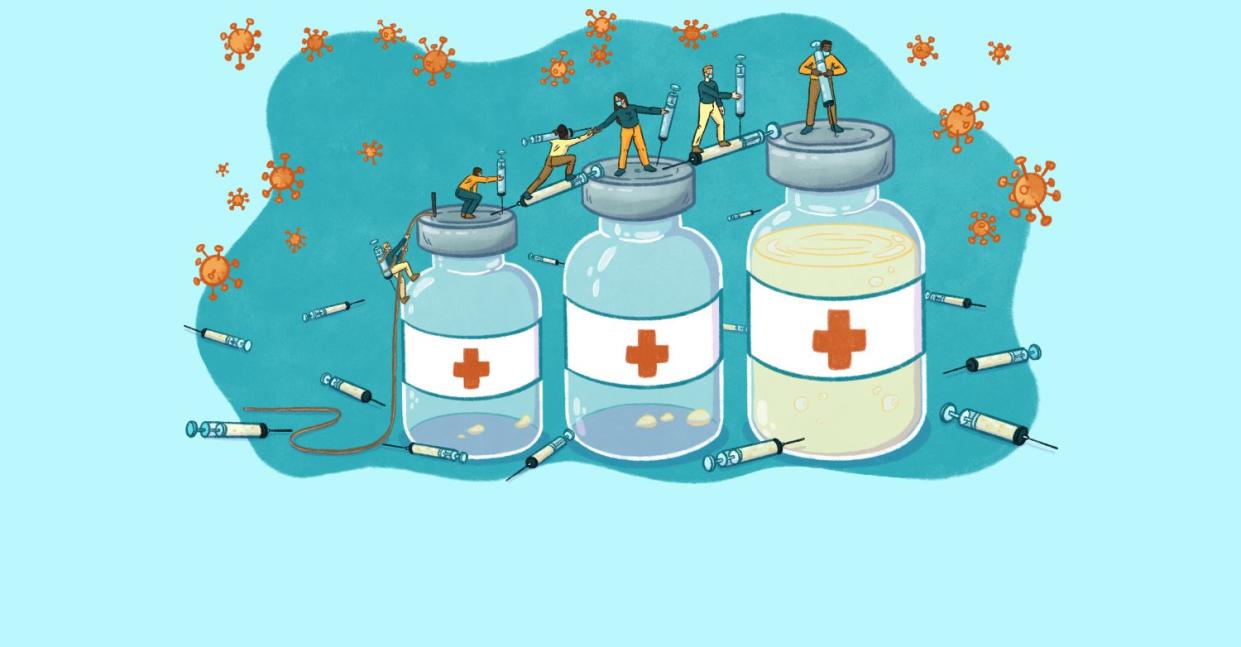COVID-19 Booster Shots: What You Need to Know

Brianna Gilmartin / Verywell
- Oops!Something went wrong.Please try again later.
COVID-19 booster shots are here! The Centers for Disease Control and Prevention (CDC) recommends everyone 6 months and older get a bivalent booster if it has been at least two months since their last COVID-19 vaccine dose.
The exception is children ages 6 months to 4 years who have received all three doses of the Pfizer primary series—they are not advised to get a booster. Instead, the bivalent vaccine is advised as the third dose in the primary series.
Bivalent mRNA COVID-19 booster vaccines, also called "updated boosters," from Pfizer-BioNTech and Moderna received emergency use authorization (EUA) from the FDA. They are called "bivalent" because they protect against the original SARS-CoV-2 and the Omicron variants BA.4 and BA.5.
The CDC recommends one bivalent booster shot for everyone ages 6 months and older, if eligible.
Everyone 6 months and older is eligible to get one of the following four COVID-19 vaccines:
Regardless of which of the four primary series vaccines you receive, the CDC recommends everyone 6 months and older receive one updated bivalent booster shot if they're eligible. The type of booster shot you can get depends on your age, health status, and what vaccine you first received.
In limited situations, a monovalent Novavax booster dose can be given to people ages 18 and older if they cannot receive an mRNA vaccine.
For certain people who are immunocompromised, the CDC recommends an additional primary series dose of an mRNA vaccine (Moderna or Pfizer) plus an updated booster is recommended.
Here, we asked experts what else we should know about boosters, from potential side effects to the intended rollout plan and timeframe. There's good news: After the bumpy road to COVID-19 vaccine distribution the first time around, the U.S. is more prepared than ever.
The information in this article is current as of the date listed, which means newer information may be available when you read this. For the most recent updates on COVID-19, visit our coronavirus news page.

